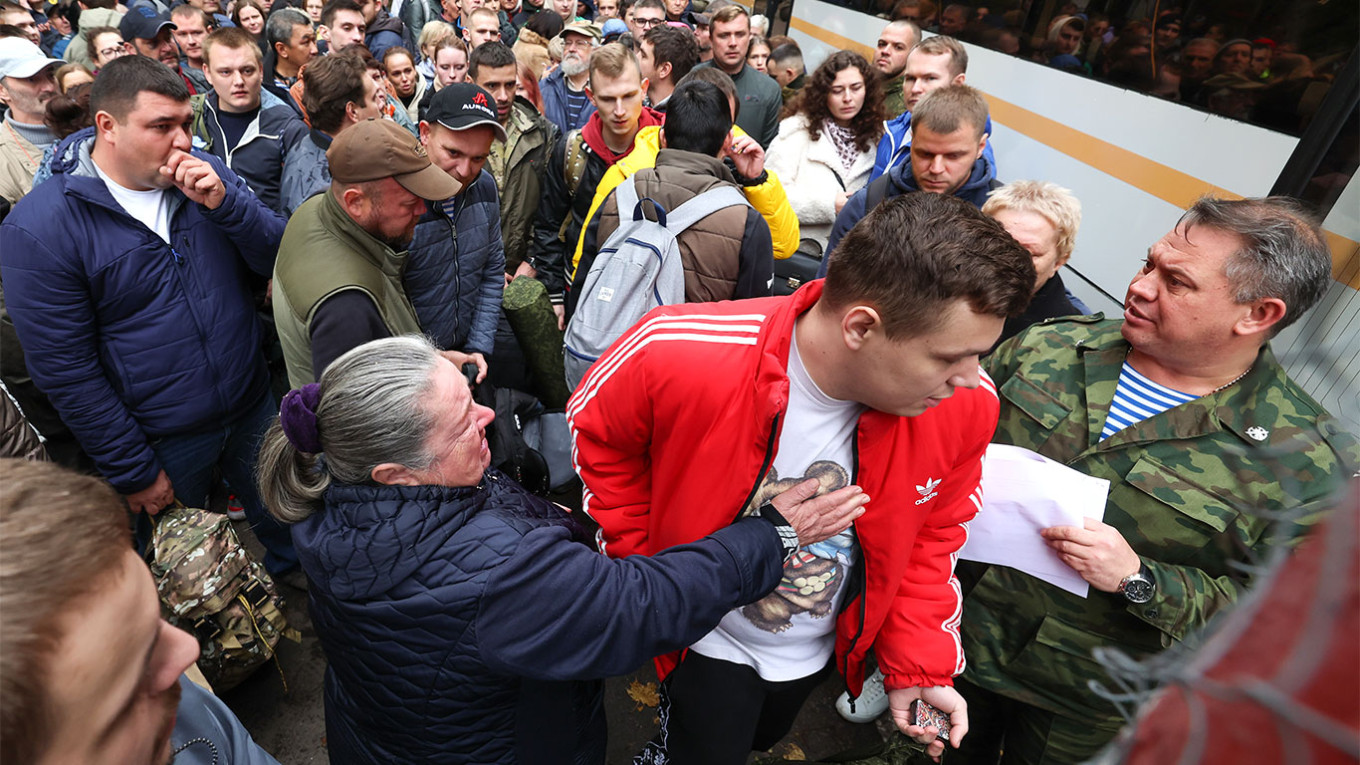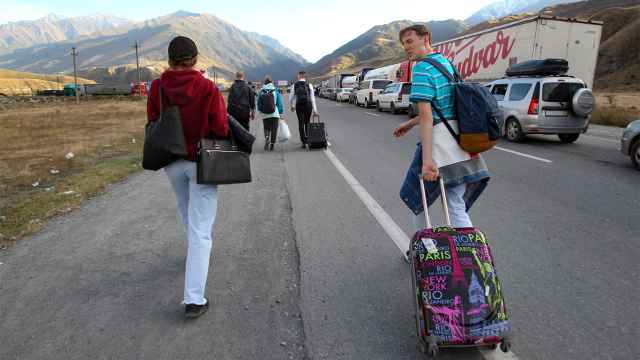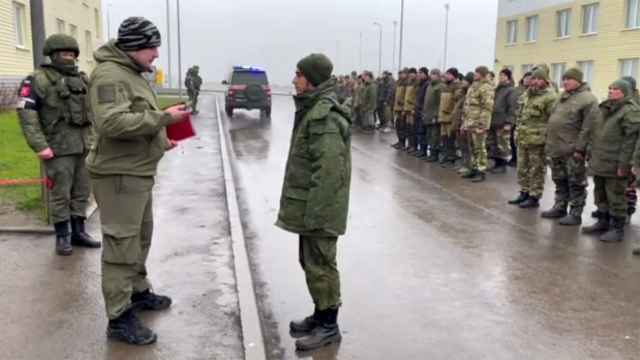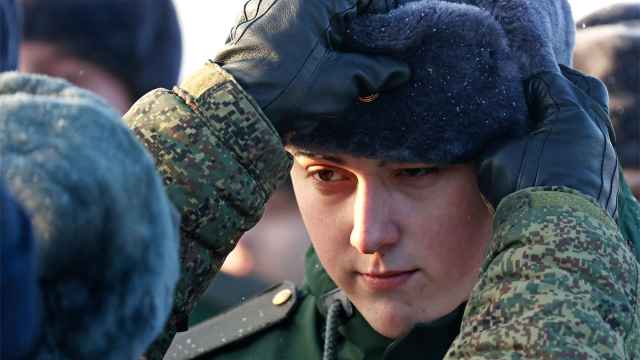“We were officially told there would be no training before we are sent to the war zone,” a newly mobilized Russian soldier says in a short video posted by legal rights group Perviy Otdel.
“On Sept. 29 we will be sent to Kherson,” adds the new recruit, dressed in a Russian military uniform. “The regiment’s commanders confirmed it.”
This admission from one man conscripted in Russia’s “partial” mobilization was part of a growing body of evidence Wednesday that the Kremlin is rushing to deploy new recruits to the frontlines in Ukraine with minimal training and, in some cases, subpar equipment and supplies.
Rather than redress Russia’s manpower shortage in Ukraine, analysts told The Moscow Times that such an approach would likely cause a whole range of new problems for the Kremlin — from low morale to troop unreliability and high death rates.
“The Russian Armed Forces with all its bureaucracy is just not able to be flexible and fast,” military analyst Pavel Luzin told The Moscow Times.
“Politically, it is possible to claim you are going to mobilize, but right now in Russia it is almost impossible to carry this out.”
In addition to the footage published Tuesday of the soldier complaining about a lack of training, other videos — that The Moscow Times was unable to verify — have emerged in recent days highlighting problems with equipment and accommodation.
In one clip, an officer tells a group of draftees to buy tampons that they could use to plug bullet wounds on the battlefield; in another, new soldiers are seen sleeping on the floor; and in another a commanding officer admits he was pulled from his vacation and has no idea about equipment, supplies or where the unit will be sent.
As Ukraine’s Armed Forces have seized the initiative in recent weeks following a successful counteroffensive in eastern Ukraine’s Kharkiv region, the Kremlin’s decision to draft tens of thousands of reservists is most likely designed to bolster its defenses in areas it still controls rather than launch new attacks, according to analysts.
Either way, the move will put strain on the country’s outdated mobilization system, which was largely dismantled in the late Soviet period and apparently under-funded for many years.
“The first limit on mobilization is likely to be throughput — the system has to call up, house, train, feed, equip,” military analyst Michael Kofman tweeted last week.
As much as 90% of the country’s estimated 2-million-strong military reserves — mostly former contract soldiers and former conscripts — have not received any training since their initial service, according to a 2019 report by U.S. think tank RAND Corporation.
While Russian President Vladimir Putin said all drafted men would be trained before being sent to the front when he announced the “partial” mobilization last week, it is unclear exactly what this training will involve, or how long it will last.
“That's it, the games are over. You’re all soldiers now,” one Russian officer told a group of mobilized men in a video published on social media earlier this week.
“Three days here. A flight. And then two weeks of military training,” he added.
Other reports have suggested that mobilized men are receiving even less than two weeks of training — and sometimes none at all.
A lack of training is likely to cost Russia thousands of lives, according to Ben Hodges, a former commander of the U.S. Army in Europe.
“It is criminal to send untrained soldiers into combat… it’s murder,” Hodges told The Moscow Times. “I doubt these men will survive very long.”
The U.S. military maintains it needs a minimum of 10 weeks to properly equip a private soldier with basic skills.
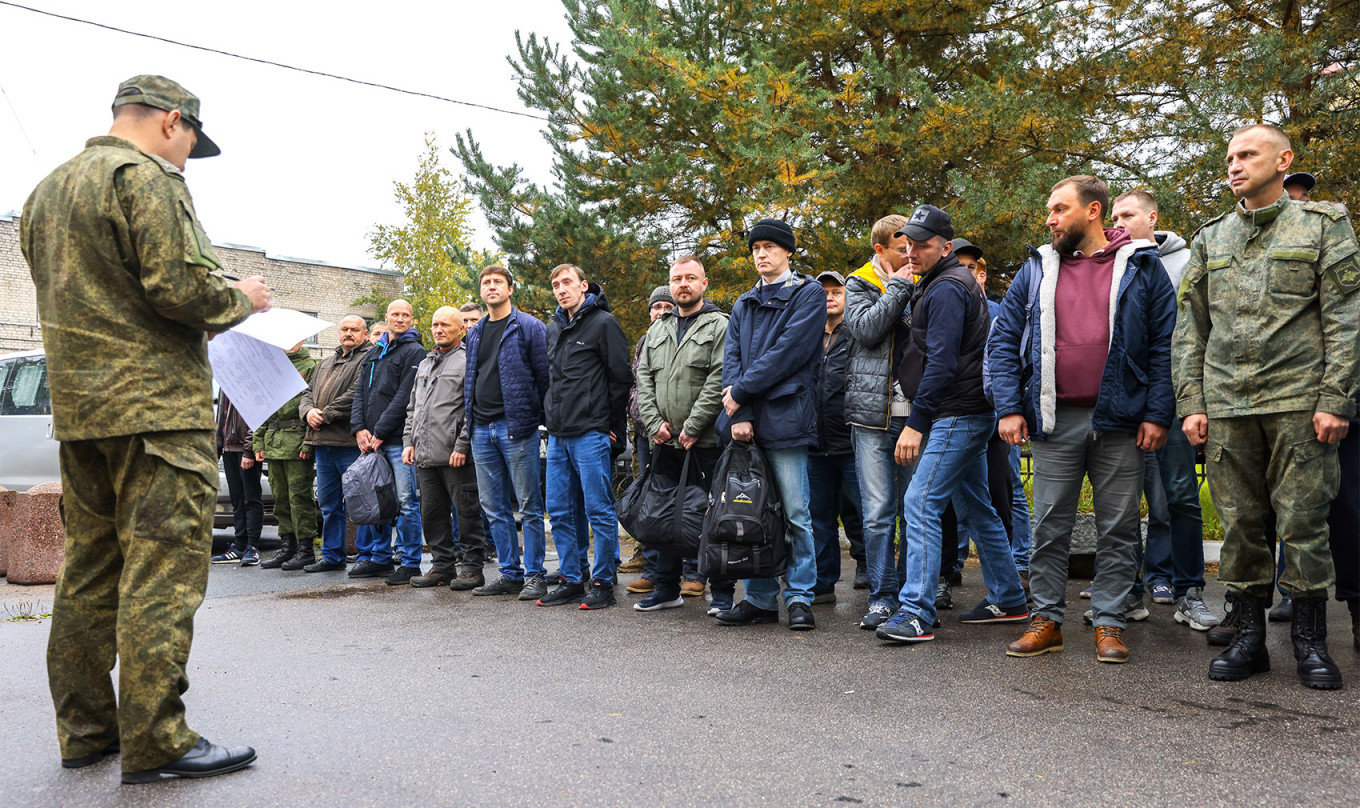
“That first 10 weeks is what transforms them, gets them physically ready, builds the culture and mindset, and gives them confidence,” Hodges said.
Even if Russia wanted to train its mobilized men, high casualty rates and current deployments mean it’s unlikely that there are enough officers available, analysts said.
“The war will now increasingly be fought on the Russian side by people who do not want to be there,” said Rob Lee, a military analyst at the Foreign Policy Research Institute.
“The difference in morale, unit cohesion, and other critical factors between Ukrainian and Russian units will grow even greater,” Lee tweeted last week.
In addition to problems with morale and effectiveness, sending hundreds of thousands more men into combat will require significant quantities of modern weaponry and vehicles.
However, after sustaining heavy losses to its fleets of tanks and armored vehicles in seven months of fighting, Russia likely only has old equipment to dispatch to Ukraine.
And, while Russia is believed to have many storage facilities with Soviet-made vehicles and weapons — including thousands of tanks — it is not clear whether this equipment is in working condition.
The fact that Russia has abandoned a huge number of tanks in the war — about 386, according to Oryx intelligence blog — suggests that Moscow has not been regularly servicing its equipment, according to analysts.
Unconfirmed footage circulating on social media in recent days has shown newly mobilized men training with rusting weaponry.
“Having used up its best equipment, officers, and personnel, I don't see how this can be recovered,” analyst Kofman tweeted.
A Message from The Moscow Times:
Dear readers,
We are facing unprecedented challenges. Russia's Prosecutor General's Office has designated The Moscow Times as an "undesirable" organization, criminalizing our work and putting our staff at risk of prosecution. This follows our earlier unjust labeling as a "foreign agent."
These actions are direct attempts to silence independent journalism in Russia. The authorities claim our work "discredits the decisions of the Russian leadership." We see things differently: we strive to provide accurate, unbiased reporting on Russia.
We, the journalists of The Moscow Times, refuse to be silenced. But to continue our work, we need your help.
Your support, no matter how small, makes a world of difference. If you can, please support us monthly starting from just $2. It's quick to set up, and every contribution makes a significant impact.
By supporting The Moscow Times, you're defending open, independent journalism in the face of repression. Thank you for standing with us.
Remind me later.



